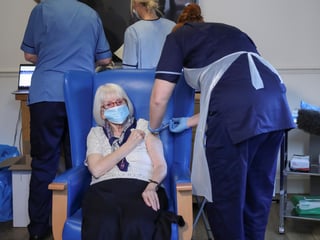'I worry a lot about the future': Young woman with multiple sclerosis calls for more research into progressive condition


The admin apprentice was diagnosed with primary progressive MS in January 2017 just after her 19th birthday, but had been experiencing symptoms for three years, after she started having trouble walking home from school at 16.
Advertisement
Hide AdAdvertisement
Hide AdHer main symptoms at the moment are optic neuritis and mobility – she has a blind spot in the middle of both eyes and sometimes can’t see very well, and she walks with a stick.


“At times MS has severely impacted my mental health,” she said. “There are a lot of negative feelings that can come with it – especially being young.
"You see everyone doing all of these things and you just can’t. For a lot of it I’m just not inclined – I never liked clubbing anyway – but I worry about going to the pub and things. And a big one is running – I’ve not been able to run since I was about 17 or 18.
“I’m afraid to go out without assistance now, knowing I depend on someone else. My best friend is really good and will always help me if she notices I’m struggling, but there are some people who I’m not comfortable depending on.”
Advertisement
Hide AdAdvertisement
Hide AdAround 19 per cent of people diagnosed with MS in Scotland are under 30, according to research about incidence in the UK done in conjunction with Public Health England.
“I have fears for the future, I worry a lot because of the progressive nature and the fact it’s my walking and my eyesight that are affected,” said Ms McMillan.
"If it keeps getting worse I could end up in a wheelchair and unable to see. I worry I’ll end up less independent – that’s my worst fear.”
She added: "It would be so nice if everyone could have the treatment to stop them progressing – especially young people. When you’re just starting out in life and suddenly this starts happening to you, it’s such a disruption. It would be amazing if it didn’t affect anyone the same way it’s affected me.”
Advertisement
Hide AdAdvertisement
Hide AdThe MS Society has launched a £100 million funding campaign in the hope of getting a range of treatments to the final testing stage by 2025.
MS Society Scotland director Morna Simpkins said: “Today, most people will first experience MS symptoms in their 20s and 30s, when they’re working on their career, or perhaps thinking about starting a family.
"The condition is unpredictable and different for everyone, and that can make it hard to plan for the future.
“There are now over a dozen licensed treatments for people with the relapsing form of MS, and some emerging for early active progressive MS – but there is nothing to stop you becoming more disabled as your condition advances.
Advertisement
Hide AdAdvertisement
Hide Ad"Thankfully, we have never been closer to stopping MS, and with the discoveries being made right now, we believe treatments that slow or stop disability progression are a very real prospect.”
A message from the Editor:Thank you for reading this article. We're more reliant on your support than ever as the shift in consumer habits brought about by coronavirus impacts our advertisers.
If you haven't already, please consider supporting our trusted, fact-checked journalism by taking out a digital subscription.
Comment Guidelines
National World encourages reader discussion on our stories. User feedback, insights and back-and-forth exchanges add a rich layer of context to reporting. Please review our Community Guidelines before commenting.
